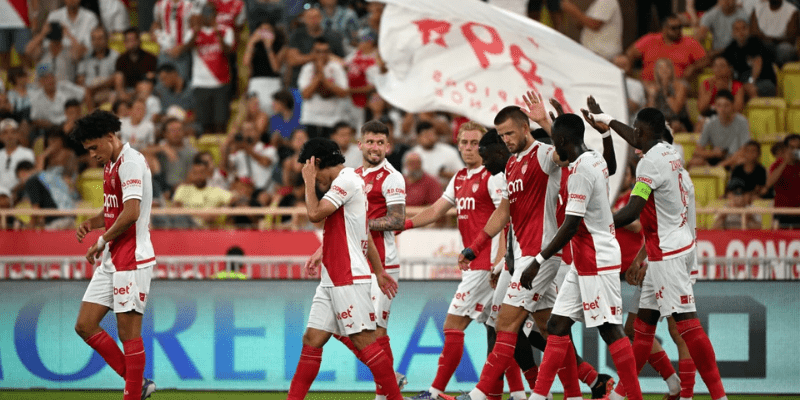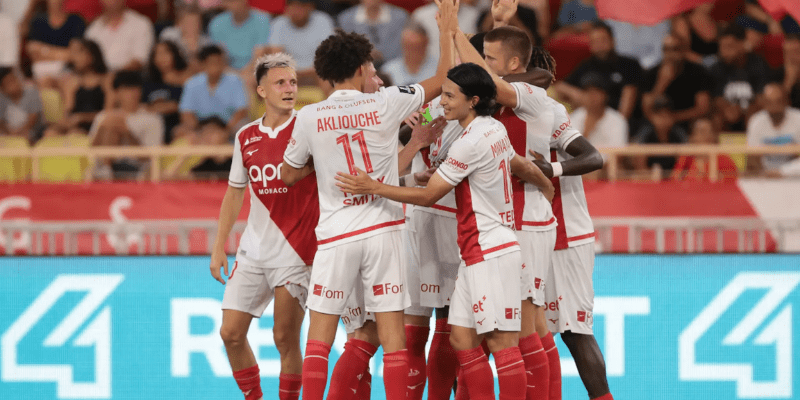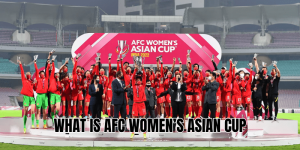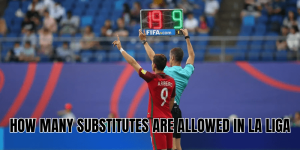From the moment you ask why is AS Monaco in Ligue 1, you scratch at a fascinating football story—one where geography, history, politics, and passion all collide. AS Monaco is not a French club by nationality—it belongs to the sovereign Principality of Monaco—but it competes in France’s top league because of long-established, practical reasons. In this article, FreeKickSEO will walk you through what makes this situation unique, how it came to be, and why it continues today.
What Monaco is, and its football reality

Monaco is a tiny country: just about 2 square kilometers of land on the French Riviera, bordered by France on almost all sides. It has its own government, monarchy, and legal identity. But despite this sovereignty, it does not have its own national professional football league system. Since there are not enough clubs, infrastructure, or public demand to sustain a domestic professional league comparable to those in larger nations, Monaco lacks a full football pyramid (with promotion/relegation, etc.).
Because of this, AS Monaco FC—which was founded in 1924—joined the French football pyramid early on. It became a registered member of the French Football Federation (FFF) and has played in the French leagues almost continuously since.
How AS Monaco became part of French football
Here are the key historical reasons and events that explain why AS Monaco plays in Ligue 1:
- Lack of a domestic league in Monaco: With no national professional championship, AS Monaco couldn’t play competitive senior league football within its own state. So the French system was the only viable option.
- Early integration into French amateur/regional divisions: After its founding in the 1920s, Monaco entered French regional amateur competitions. Over time it progressed through the French lower divisions, gaining professional status under the FFF.
- Professional status and promotion: AS Monaco turned professional (invited by the French Football Federation) and climbed up the French ranks. Its first promotion to the French first division (what we now call Ligue 1) came in 1953.
What it means in practice: Monaco in Ligue 1 today
Being the only club from a sovereign microstate competing in another nation’s top league brings both perks and complications.
Advantages and challenges
Advantages:
- Access to a high level of competition: Ligue 1 is one of Europe’s top leagues; Monaco gets to compete with the major French clubs and qualify for European competitions.
- Prestige, exposure, and talent pipelines: Monaco has produced or showcased many stars (Mbappé, Thierry Henry, etc.) partly because they operate in a big-league setup.
Challenges:
- Regulatory and identity issues: AS Monaco is fully under the French federation for league purposes, but remains Monégasque for national identity. It cannot field a team in European competition “for Monaco”—it does so as a French club.
- Fiscal & logistical complexity: Given its location, stadium, training grounds—all have logistical overlaps with French territory. Some parts of operations happen in France (e.g. training center in neighboring France) to reduce spatial constraints.
Comparisons and uniqueness among European clubs

AS Monaco is not totally alone in playing in another country’s league system, but its case is fairly unique:
- Clubs from Liechtenstein (e.g. FC Vaduz) compete in the Swiss leagues because Liechtenstein lacks a full league system, but they have their own national cup and membership in UEFA.
- Some clubs near borders play in leagues across borders for historical or logistic reasons. But very few are from fully sovereign microstates like Monaco that do not have their own league.
So while there are analogies, AS Monaco’s setup—sovereign country, no domestic league, playing in neighboring country’s top-tier—is extremely rare.
Impact on Monaco’s performance and identity
The arrangement of being in Ligue 1 influences how AS Monaco builds its team, its strategies, its fanbase, and its legacy.
- Competitive achievements: Despite being a small state, Monaco has won eight Ligue 1 titles and multiple French cups. They remain one of the strongest clubs in France.
- Youth development and transfers: Monaco has often relied on developing young stars (or discovering talent elsewhere), then selling to bigger clubs. The revenues help maintain competitiveness.
- Cultural fusion: The club’s identity is deeply tied to Monaco—the monarchy, the geography, the local fan culture—but many players, staff, and fans are French (or international). This duality gives AS Monaco a special aura.
Why this continues: legal, logistical, and sporting reasons
Why hasn’t AS Monaco moved to form their own league, or been forced to leave Ligue 1? Several reasons:
- Scale and sustainability: Monaco is tiny. A domestic professional league would struggle with infrastructure, revenue, reach, and talent. There are just not enough competitive clubs inside the principality.
- Historical agreements:. UEFA/FIFA rules alignment: AS Monaco is a member of the French Federation, so it qualifies for European competition. Since Monaco is not a UEFA member in its own right (for a national league), this setup works under current rules.
- Sporting advantage and incentive: Competing in Ligue 1 brings higher visibility, greater competitive matches, better TV revenue, and stronger attractiveness to players. Leaving Ligue 1 would mean a major drop in competitive and financial levels.
Key facts about AS Monaco in Ligue 1
- Founded in 1918/1924 (some early origin clubs combined) and went professional under French federation.
- First promoted to the French first division in 1953.
- Ligue 1 titles won: eight (for example, 1960-61, 1977-78, 2016-17 among them).
- Stade Louis II (capacity ~16-18,000) is their home.
- Monaco has no domestic cup competition of its own that feeds into UEFA competition; all path to Europe is.
Possible criticisms or controversies

- Some fans argue that AS Monaco has advantages or disadvantages: e.g., lower taxation, attractive location, limited local fanbase size vs. big French cities.
- Questions arise: is it fair in terms of revenue sharing, broadcasting rights, and representation compared to clubs located in French territory?
- Also, Monaco being excluded from certain national aspects (e.g., their own national league or cup) might be viewed as limiting their autonomy or identity.
Current status and outlook
As of the latest seasons:
- AS Monaco remains in Ligue 1 and is competitive. In the 2024-25 season, Monaco finished 3rd in Ligue 1, securing Champions League qualification.
- Monaco continues to invest in infrastructure, youth scouting, and balancing big transfers in and out. Their model often hinges on discovering or developing young talent, making big sales, and reinvesting.
Conclusion
Why is AS Monaco in Ligue 1? Because it was the practical, historical, and sustainable choice for a sovereign microstate with no domestic league of its own. Monaco joined France’s football system early, grew within it, and has stayed because it offers competition, exposure, and legitimacy that simply wouldn’t exist otherwise.
If you love football because of its weird quirks, its histories that defy logic, AS Monaco’s story is one of the best.
If you’re curious, FreeKickSEO suggests you next check out:
- How Monaco’s transfer policy compares to other small-nation clubs
- What UEFA rules say about club nationality vs. league membership
- Top AS Monaco players of all time — stats, records, and impact
Let this article be your go-to when someone asks why AS Monaco is in Ligue 1 — you’ve got the full picture.






